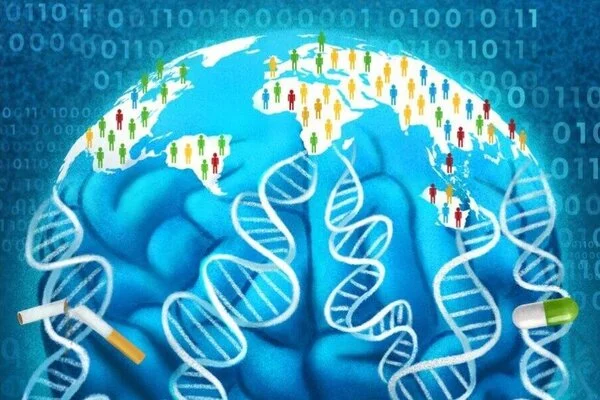Machine learning can be used to identify drugs that could potentially help smokers quit. By analyzing large amounts of data on smoking patterns and the efficacy of various drugs in helping people quit, machine learning algorithms can identify patterns and make predictions about which drugs are likely to be most effective for different groups of smokers. However, it’s important to note that the use of machine learning in this context is still a developing field, and more research is needed to validate the predictions made by these algorithms.
According to a study conducted by Penn State College of Medicine and the University of Minnesota, medications such as dextromethorphan, which is used to treat coughs caused by colds and flu, could potentially be repurposed to help people quit smoking cigarettes. They developed a novel machine learning method to identify the drugs, in which computer programs analyze data sets for patterns and trends, and stated that some of them are already being tested in clinical trials.
Cigarette smoking is a risk factor for cardiovascular disease, cancer, and respiratory diseases, and it is responsible for nearly 500,000 deaths in the United States each year. While smoking behaviors can be learned and unlearned, genetics also influences a person’s proclivity to engage in those behaviors. The researchers found in a prior study that people with certain genes are more likely to become addicted to tobacco.
Re-purposing drugs using big biomedical data and machine learning methods can save money, time and resources. Some of the drugs we identified are already being tested in clinical trials for their ability to help smokers quit, but there are still other possible candidates that could be explored in future research.
Dajiang Liu
Dajiang Liu, Ph.D., professor of public health sciences and biochemistry and molecular biology, and Bibo Jiang, Ph.D., assistant professor of public health sciences, co-led a large multi-institution study that used machine learning to study these large data sets, which included specific data about a person’s genetics and self-reported smoking behaviors.
The researchers discovered over 400 genes associated with smoking habits. Because a person can have thousands of genes, they had to figure out why some of those genes were linked to smoking habits. Simple connections were found between genes that carry instructions for the production of nicotine receptors or are involved in signaling for the hormone dopamine, which makes people feel relaxed and happy. The research team had to determine the role each gene plays in biological pathways and then use that information to determine which medications are already approved for modifying those existing pathways.

Because the majority of the genetic data in the study comes from people of European ancestry, the machine learning model had to be customized to study not only that data, but also a smaller data set of around 150,000 people of Asian, African, or American ancestry.
On the project, Liu and Jiang collaborated with over 70 scientists. They identified at least eight medications that could be repurposed for smoking cessation, including dextromethorphan, which is commonly used to treat cold and flu coughs, and galantamine, which is used to treat Alzheimer’s disease. The findings were published in the journal Nature Genetics.
“Re-purposing drugs using big biomedical data and machine learning methods can save money, time and resources,” said Liu, a Penn State Cancer Institute and Penn State Huck Institutes of the Life Sciences researcher. “Some of the drugs we identified are already being tested in clinical trials for their ability to help smokers quit, but there are still other possible candidates that could be explored in future research.”
While the machine learning method was able to incorporate a small set of data from diverse ancestries, Jiang believes it is still important for researchers to build genetic databases from people of diverse ancestries.
“This will only increase the accuracy with which machine learning models can identify individuals at risk of drug misuse and identify potential biological pathways that can be targeted for beneficial treatments.”





